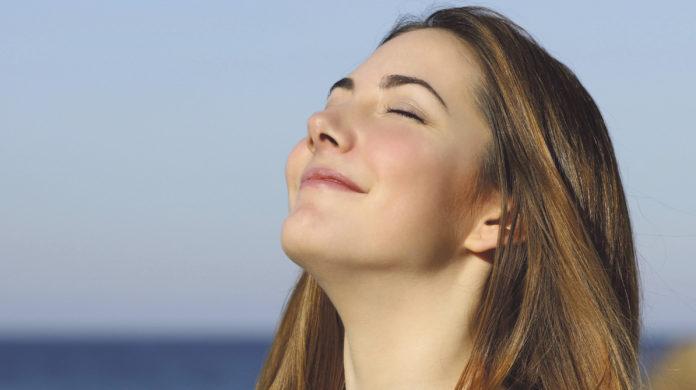
THOSE lights on trees, candles everywhere and sparkly street lights might just be decoration now, but they came about to offset the short days and long nights. They came to symbolise hope for the return of the sunshine, after another long, lean Winter.
While much has changed in how we live, we are still intrinsically wired the same way. Our brains thrive on light and without sufficient exposure to it, we can start to suffer in several ways:
• your sleep pattern can go out the window; you may find you want to sleep a lot more than usual, or that the times you fall asleep and wake change during winter.
• disrupted sleep means the body doesn’t get a chance to heal as well as it ordinarily would. As a result, you may find you pick up coughs, colds or ear infections more easily, or perhaps cuts and scrapes don’t heal so efficiently.
• when your body clock isn’t well regulated, your appetite can be altered as well. Your metabolism may be more sluggish than usual, so you may find you put on surplus weight. Bear in mind too, if you spend more time indoors in winter than you would in summer, boredom can mean you snack more than you otherwise would.
What else do you do with all that time indoors? Might it involve screens? Screens are ubiquitous now. In fact, it’s become normal for people to have two on the go at once, maybe TV and tablet or smartphone. The upshot of this information overload is that your brain never gets a chance to just power down and reflect. Not to mention, the light from screens is not the same as natural daylight, in terms of the impact it has on you brain and nervous system. Ironically, the very thing many of us are starved of these days is sleep. And blue light from screens suppresses melatonin production. That’s the hormone we need to induce sleep. So we keep our minds busy late into the evening, staring at blue light sources which guarantee we won’t be able to sleep when we finally do try.
So, if there is any good habit you want to take on board in the aftermath of this festive season, make light your mission. And by that I mean natural light.
• Can you situate your office desk by a window, to get some degree of natural light exposure while you work?
• Put a reminder in your phone if you need to, but get outdoors at some stage in the middle of the day, when the restricted light we do have is at its peak.
• If you find your mood suffers at this time of year, you might want to consider a daylight lamp, or install some full-spectrum lightbulbs, so that your brain can at least get some expsore to light during this dull, dark time.
• Plug out from time to time. Rather than hopping from one device to the next, give your eyes and brain a break. Look away from your screen regularly while you are using it. Gaze into the middle distance, looking at nothing in particular, then pick out a faraway object on which to focus. Shut your eyelids, and massage your closed eyes very gently with the padded area at the base of your thumbs. Blink regularly to help hydrate the eyes and also help the eyes process all the information that is coming at them. Think of them as a shutter on a camera. You wouldn’t leave it open all the time.
• Up your intake of green foods and good fats, like fatty fish, especially the smaller ones, like sardines and mackerel. Avocado, walnuts and linseeds are also great sources of essential fats, which definitely help your brain get through the winter in better condition.
While alcohol intake seems to go hand in hand with the festivities, it’s worth knowing that alcohol is ultimately a depressant. It messes with your GABA levels, that neurotransmitter that helps you feel calm and balanced. It also plays a role in regulating sleep. So, if you’ve been having one too many alcohol fuelled events over the season, the chances are, you’re feeling a bit frazzled, jaded and edgy.
So give yourself a break by choosing a long walk, a healthy fish lunch, listening to some calm, uplifting music or reading an inspirational book. Maybe even have an early night.
Take a break, take a breath, shut your eyes and relax!










